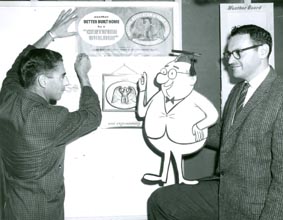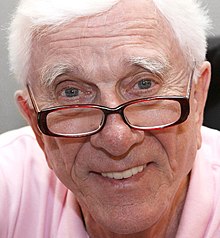“So the Jock said to his unsuspecting listening audience:
Yeah, if they look to the left , they’re lying!”That was in the blog post from 5th August and so was
“wait until you get onto studying what people do with their heads yet alone the words they use!”
and here it is. You see …
A nod’s as good as a wink
well sort of…...Much is made of body matching to get into rapport with someone:
full body matching, half body matching, mirroring, etc. but actually it is much more simple than that!
you don’t have to shape your body into a posture that they are using
you don’t have to follow their movements to get into rapport although it helps and sometimes there is no alternative, such as young love where you just have to mirror and match!
 In "That's a Lie" we looked at what people do with their eyes, which means we can also quickly glean what is their prime sense. Whether it is Visual or Kinaesthetic or Auditory or Gustatory/Olfactory.
In "That's a Lie" we looked at what people do with their eyes, which means we can also quickly glean what is their prime sense. Whether it is Visual or Kinaesthetic or Auditory or Gustatory/Olfactory. It is fairly safe to assume that if a person repeatedly looks up, whilst in conversation, they are probably accessing remembered (Vr Visual remembered) or constructed images (Vc Visual constructed) and therefore, their strongest sense is probably Visual.
What people do with sensual input is part of the way they use their Representational Systems - the systems they use to represent their reality (Sight, Sound, Touch,Smell, Taste and Self Talk) and the sub modalities, which is how they use their senses e.g. how bright, how sharp, how loud, etc.
Some people are “Digital”, which means that they offer very little sensual output.
Digitals don’t tend to use sensual words like “see”, “feel”, “sound” etc.
They tend to have a fixed gaze and they may appear to be “in a world of their own” (they are probably in trance).
If a Digital were to explain something in great detail, they would not notice that most of their audience falling asleep – anybody know a professor like that?
Since they offer little sensual output they receive little sensual engagement. If someone’s senses are not engaged, they usually go to sleep!
I am visually representing that I want to know that you understand.
The visual sense has the highest velocity (Sensual Bandwith as David McCandless describes it in an earlier blog post )
I just couldn’t see the Digital’s point and I would probably end up LOOKING for Mischief
Rapport is easy, all you need to do is use your head
Meet and Greet
as they say hello watch how they move their headActive and Passive
People use their heads in big movements or subtle movements. If they strongly agree they may nod their head strongly up and down – Active - or they may just wink once – Passive. You have to observe how they do Active and how they do Passive – CalibrateNegative and Positive
Similarly Negative and Positive head movements are distinct like Active and Passive head movements, for example:left to right and back again repeatedly (shaking one’s head) to represent disagreement - a negative response and upward and downwards (nodding) to represent yes – a positive response.
You have to observe how they do Negative and how they do Positive – Calibrate
Decision Making Strategies

Observe the series of head movements of people while they make decisions and you will usually find they move their heads in a particular pattern.
It may start by a look up to the right, switch to a look upwards to the left and then back again before looking down to their right, a Passive Positive movement of the head.
This pattern will usually the same for all decisions that they make but you have to observe how they do their Decision Making Strategy – Calibrate
Taking the above example, the person:
- probably constructed a visual image (Vc they imagined how the result of the decision looks)
- pictured a memory that relates to the decision (Vr)
- checked that image against their constructed image (Vc)
- asked themselves how they felt about their decision (Ai) and
- finally nodded (Passive Positive) as they agreed with their decision
i.e. hurry up or cause a decision when one needs to be made – i.e. they cause them to be in Rapport with you.
Past and Present Orientation
Similarly observe how someone uses their head whilst they relate to past events.Most people never actually tell you what happened. They tell you the story of what happened, which means their focus is internal and they are usually in a trance state.
They may tilt their head left, while they are speaking.
To interrupt their Past Trance subtly nod your head in the opposite direction - This is a suggestion to their unconscious that should step back into the present where you can suggest by your head movement that they need to make a decision by using Their Decision Making Strategy on them.
and there’s more ……..





![cartoon[1] cartoon[1]](http://aypee.files.wordpress.com/2010/09/cartoon11.jpg)



 To get an idea of the velocity, look at David McCandless’s work -
To get an idea of the velocity, look at David McCandless’s work - 
